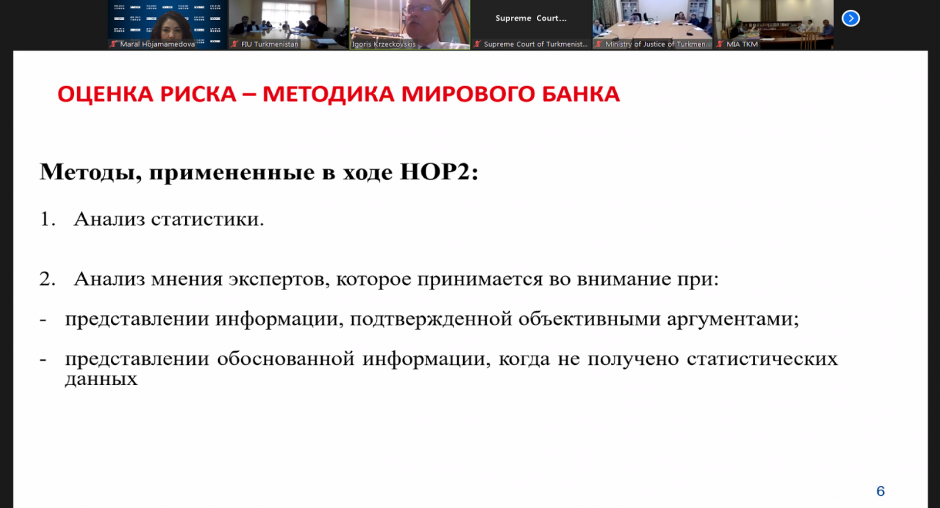Role of law enforcement and supervisory bodies in combating money laundering and terrorist financing discussed at OSCE seminar in Turkmenistan

On 26 and 27 April 2022, the OSCE Centre in Ashgabat organized an online seminar on the tasks and functions of law enforcement and supervisory bodies in implementing the 2021-2022 Risk Management Action Plan (RMAP) on anti-money laundering and countering financing of terrorism (AML/CFT). The event was organized as part of the Centre’s support to the host country in preparation for the Eurasian Group’s (EAG) mutual evaluation process.
The two-day event brought together representatives from the Ministry of Finance and Economy of Turkmenistan, its Financial Monitoring Service, the Supreme Court, the General Prosecutor’s Office, the Ministry of Internal Affairs, the Ministry of Justice, the Ministry of Defense, law enforcement agencies and other state institutions involved in the EAG evaluation process.
An international expert from Lithuania focused on the prioritization of steps to implement the RMAP, both by law enforcement and supervisory bodies and presented the OSCE best practices in preparing for the EAG mutual evaluation process, expected in the summer 2022.
"Undoubtedly, the role of law enforcement and supervisory bodies in the implementation of the National Risk Management Action Plan and international commitments of the host country in the area of AML/CFT is extremely important,” said John MacGregor, Head of the OSCE Centre in Ashgabat. “It is our firm belief that this event will facilitate the exchange of expert knowledge among law enforcement and supervisory bodies and will contribute to their enhanced co-operation, which is crucially valuable for an effective mutual evaluation of the EAG”.
“The preparation process is especially important given the existing regional threats and risks, but together we will have enough time to make preparation procedures more effective,” added MacGregor.
The event is organized within the framework of the project “Strengthening adherence to good governance principles”.
